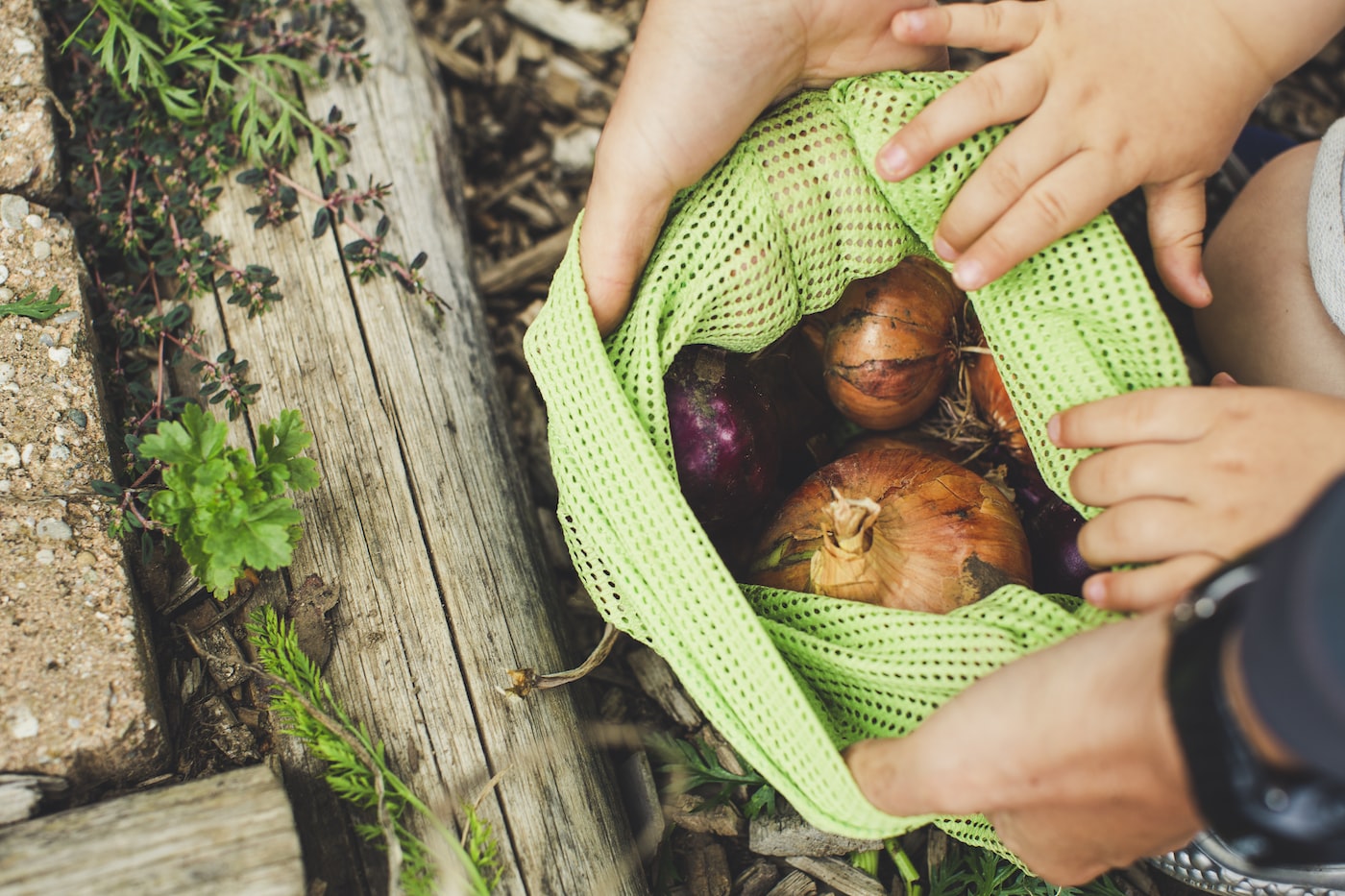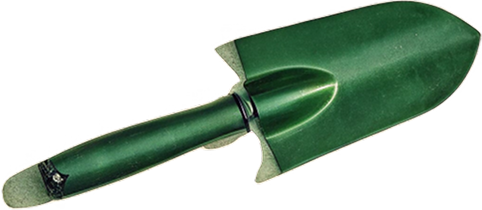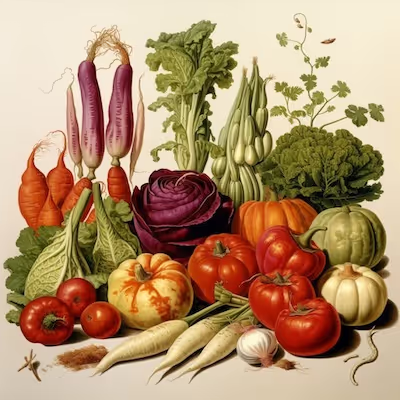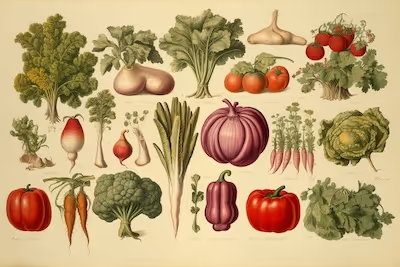Backyard Gardening: The Delight of Growing Fresh Vegetables

Backyard Gardening
Ready to taste produce at peak freshness? Backyard gardening delivers succulent tomatoes, crunchy lettuce, and aromatic herbs directly from soil to kitchen. With basic tools, minimal space, and a bit of sunlight, backyard gardening rewards you with vibrant harvests, year after year—and satisfaction money can't buy. Here's how to start your edible oasis.
Cheatsheet: Backyard Veggie Growing for Flavor & Health
🌱 Benefits
- Homegrown vegetables can contain up to 50% more nutrients than store-bought.
- Growing food increases self-sufficiency and reduces grocery bills.
- Dirt time lowers stress; vitamin D from sun, too.
🛠️ Tools and Products You'll Need
- Hand trowel
- Soil fork or shovel
- Watering can or hose
- Pruners
- Compost or organic fertilizer
- Mulch
- Seeds or starter plants
- Raised beds or garden plot (optional, but boosts yields)
- Gloves (optional)
🌞 Site Choice & Setup
- Pick a spot with 6+ hours of sun daily.
- Soil drains well; avoid soggy patches.
- Build raised beds (6–12 in/15–30 cm deep) if soil quality is poor.
🌿 What to Plant
- Fast growers: lettuce, radish, spinach (harvest in 4–6 weeks)
- Summer staples: tomatoes, zucchini, peppers
- Root crops: carrots, beets (10–12 weeks)
- Herbs: basil, parsley for flavor & health
🗓️ Seasonal Timing
- Direct seed cool crops 2–4 weeks before last frost (40–70°F/5–21°C soil)
- Transplant warm crops after last frost, when nights stay above 50°F/10°C
💧 Water & Care
- Water deeply, 1 in/2.5 cm weekly (more in heat)
- Mulch to retain moisture & prevent weeds
- Fertilize every 3–4 weeks if needed
- Inspect for pests; remove by hand or use organic sprays
🥕 Harvest & Enjoy
- Pick often for continuous yield
- Harvest in the morning for peak taste & nutrition
- Share surplus with neighbors or preserve (freeze, pickle)
- Choose site with sun and good drainage.
- Prepare soil: loosen and mix in compost.
- Plant seeds or starts by recommended depth.
- Water regularly, keep soil moist but not soggy.
- Mulch around young plants.
- Weed and inspect weekly.
- Harvest when ready and replant for succession crops.
The Simple Pleasure of Backyard Gardening
There's nothing quite like stepping into your backyard after sunrise, coffee steaming in hand, and greeting your thriving crops. A modest vegetable patch offers satisfaction and a touch of independence you can't replicate elsewhere.
Freshness You Can't Buy
If you've ever tasted a sun-warmed tomato right off the vine, store-bought produce suddenly pales. There's a distinct, sweet purity to eating vegetables you've nurtured yourself.
Last summer, my homegrown zucchinis became a slight obsession. From grilled slices drizzled with olive oil to rich zucchini bread, the abundance from just a few plants surprised even me.
"Households engaged in backyard gardening can cut their grocery produce bills by up to 20%, according to gardening economists."
Therapy in the Soil
Gardening, I've found, is equally nourishing for mind and soil. Digging, planting, and watering offer a meditative quality that can't be overstated.
After a stressful week, spending an hour pulling weeds or thinning seedlings resets my perspective and reconnects me with nature's rhythm.
Steps to Creating Your Backyard Vegetable Garden
Getting a garden started requires little beyond enthusiasm and a slice of earth. Here’s a simple breakdown of essential steps to initiate your own backyard gardening adventure:
- Choose Your Spot: Select a patch receiving at least 6 hours of daily sunlight, ensuring healthy plant growth.
- Prep Your Soil: Loosen and amend your soil with compost, promoting optimal nutrient levels and texture.
- Determine Your Crops: Pick easy-to-grow plants like tomatoes, beans, lettuce, and carrots to build confidence quickly.
- Sow or Transplant: Start from seeds directly in the ground, or transplant nursery-grown seedlings for an earlier harvest.
- Tend Consistently: Water regularly, keep weeds at bay, and observe each plant's unique needs.
A Natural Connection
Witnessing a tiny seed sprout, mature, then bear fruit feels downright magical. Backyard gardening reconnects you with cycles far older and wiser than we understand.
Last fall, watching honeybees dance tirelessly among my flowering herbs reminded me again how our gardens feed far more than just ourselves.
Passing On a Legacy
Teaching my niece to pull up carrots—her eyes wide at the sight of orange roots emerging from the dark earth—gave me a sense of purpose deeper than any harvest could. Gardening passes traditions, reinforces sustainable living, and evokes timeless lessons about patience and fulfillment.
"Studies suggest children who participate in gardening activities develop healthier eating habits, greater appreciation for the environment, and improved mental health."
Reward Greater than Effort
Sure, backyard gardening requires sweat, patience, and a willingness to combat slugs or hungry rabbits. But every blister, sunburn, and sore muscle fades quickly when tasting that first crisp cucumber or tender snap bean straight off the vine.
Backyard gardening offers a humble yet profoundly meaningful pursuit, nourishing both the table and soul in equal measure.

Want smarter plant choices? 🪴
Frequently Asked Questions About Backyard Gardening
What vegetables grow easily in a backyard garden?
For beginners, start planting leafy greens like lettuce, spinach, and kale, along with radishes, carrots, zucchini, and tomatoes. These plants thrive in most backyard gardens, requiring minimal maintenance and rewarding gardeners with abundant yields.
How much sunlight should vegetables get in backyard gardening?
To flourish properly, most vegetables prefer six to eight hours of direct sunlight daily. While leafy greens manage in partial shade, tomatoes, peppers, and cucumbers rely significantly on full sunlight to achieve maximum growth and fruit production.
How frequently should I water my vegetable garden?
Vegetable plants need consistent moisture, typically about 1 inch (2.5 cm) of water per week. Provide water regularly, directing moisture toward plant roots. During dry conditions or hot spells above 85°F (30°C), check moisture levels more often to prevent plants from wilting and to encourage optimal growth.
What soil type suits backyard vegetable gardening best?
Vegetable plants thrive in well-draining, fertile soil, enriched with organic matter like compost or well-aged manure. Aim for a slightly acidic to neutral pH of 6.0 to 7.0, ensuring vigorous growth and productive harvests.
When is the ideal planting time for vegetables?
Your ideal planting time depends heavily on local climate conditions and frost dates. Cool-season crops like peas, spinach, and carrots tolerate temperatures as low as 40°F (4°C) and can be planted early spring. Warm-season plants such as tomatoes and peppers prefer soil temperatures consistently above 60°F (16°C), typically from mid-spring onward.
Are raised garden beds beneficial for backyard gardening?
Raised garden beds offer numerous advantages, including improved soil drainage, easier weed control, reduced soil compaction, and simplified access for planting and harvesting. They particularly benefit gardeners dealing with poor natural soil conditions or limited gardening space.
How do I naturally protect my vegetables from pests?
Promote a balanced garden environment by attracting beneficial insects like ladybugs and praying mantises. Combine crop rotation, companion planting, and natural repellents—such as neem oil and garlic sprays—to maintain healthy plants and mitigate pest populations.
Backyard gardening strips life down to the essentials: dirt under your nails, the smell of tomato leaves, the quiet thrill of a fresh-picked pepper. Growing your own food teaches patience and rewards grit. You learn to respect the quirks of the seasons, and you get food that tastes like food—crisp, sweet, real. Nutrient-dense vegetables don’t just fill your plate; they feed your soul. If you want to get more from your patch, check out these tips for a bountiful harvest. In the end, backyard gardening is about the everyday magic of watching something grow—and, honestly, the food is just a bonus.
The Science Behind Backyard Gardening: How Growing Vegetables Boosts Health and Happiness
Soil Microbes Improve Mood and Immunity
Mycobacterium vaccae, naturally present in garden soil, triggers serotonin production, improving mood and reducing anxiety.
- Consistent soil exposure supports healthy immune responses and reduces allergy risk.
Regular Gardening Enhances Bone Strength and Heart Health
- Digging and planting burns up to 330 calories per hour, comparable to moderate walking.
- Consistent gardening lowers heart attack risk by up to 30%, per American Heart Association research.
- Exposure to sunlight during gardening boosts vitamin D levels, strengthening bones and immune defenses.
Nutrient-Packed Harvest Directly Supports Health
- Home-harvested vegetables retain maximum nutrient levels; store-bought produce loses vitamins during storage and transport.
- Leafy greens grown at home contain up to double the vitamin C and antioxidants of store-bought equivalents.
Gardening Supports Healthy Sleep Patterns
Exposure to natural daylight regulates circadian rhythms, improving sleep quality and duration.
Community Gardening Promotes Longevity
A study conducted by Harvard found social interaction in shared gardens increases lifespan and cognitive function.
Organic Homegrown Crops Minimize Chemical Exposure
- Growing vegetables organically significantly reduces ingestion of pesticides, lowering long-term health risks.
- Position backyard gardens away from roadways to avoid contamination from vehicle exhaust or road runoff.
Find out which plants will thrive in your garden!
Answer a few fun questions and get custom plant recommendations perfect for your space. Let’s grow something amazing together!

start your season





